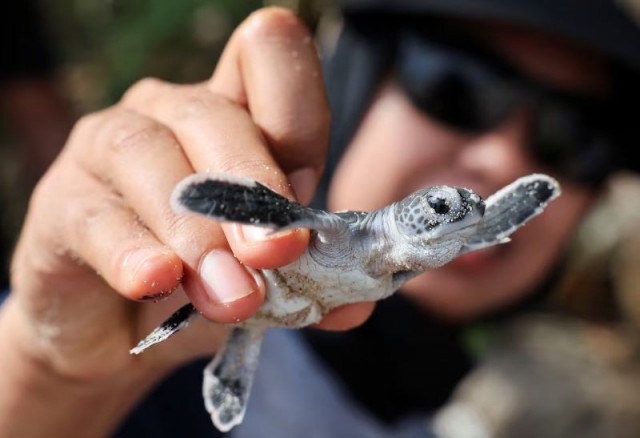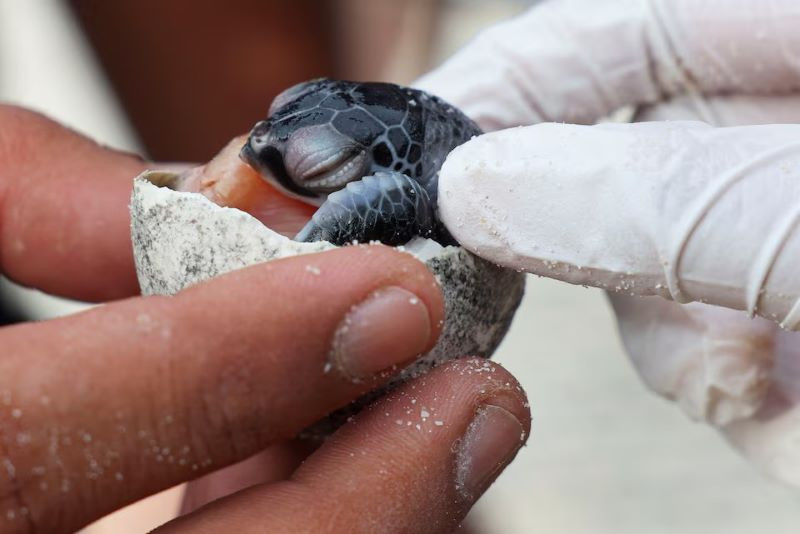In Malaysia, warmer temperatures mean fewer male turtles, hurting conservation efforts
The temperature of the developing turtle eggs is what determines sex and seems disturbed due to climate change

On a secluded Malaysian beach, a group of volunteers carefully retrieved newly laid sea turtle eggs in the sand and moved them to a shady, cooler location, in response to fears by researchers that warmer weather is leading to fewer male hatchlings.
The teveloping turtle eggs is what determimperature of the denes sex. Observers at the Chagar Hutang Turtle Sanctuary on Redang Island believe they are already seeing fewer males being hatched due to climate change - with the situation made worse this year by prolonged hot and dry spells caused by the El Niño weather phenomenon.

"Sea turtle conservationists were concerned that uncontrolled global warming in the future, in the next 15, 20, 30 years, will be detrimental... because it will feminise sea turtle hatchling populations," Nicholas Tolen, a researcher at University of Malaysia Terengganu said.
Moving nests to shadier spots or irrigating them with water has been proven to help lower incubation temperatures, though the success of the sanctuary's program was still being measured.
Such methods were also preferable to artificial incubators, which could disrupt sea turtle hatchlings' understanding of the earth's magnetic field, affecting their orientation and ability to nest, the researchers said.



















COMMENTS
Comments are moderated and generally will be posted if they are on-topic and not abusive.
For more information, please see our Comments FAQ